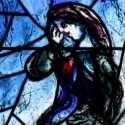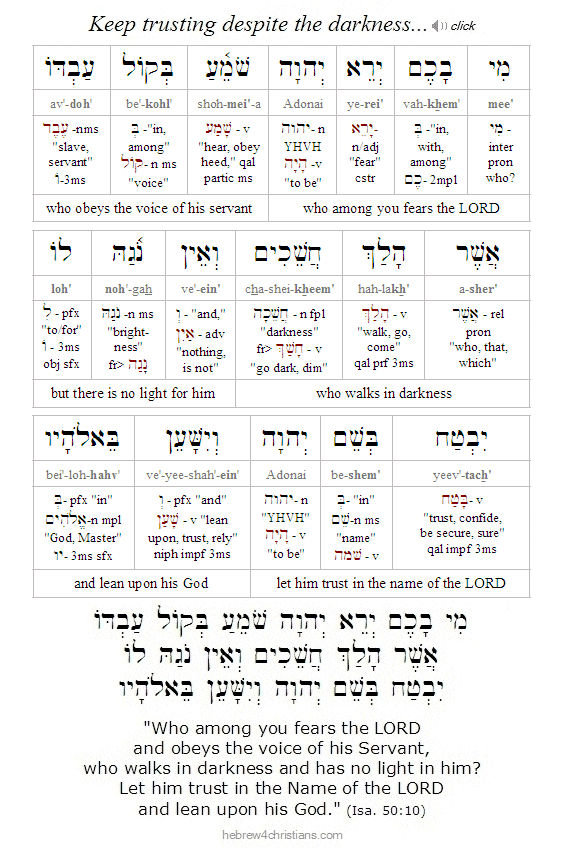|
|
|||||||||||||||||||||
 |
|||||||||||||||||||||
 |
|||||||||||||||||||||
|
|
||||||||||||||||||||||||||||
|
After the tragic death of his sons Nadav and Avihu we read: "And Aaron was silent" (Lev. 10:3). Here the sages connect surrender to God with humility, for surely the death of Aaron's two son's evoked his cry of protest, his objection before the LORD... The reason for what happens in our lives is often (always?) beyond our understanding, yet the righteousness of God's plan – even if undisclosed to us - must be accepted by faith. As it says: "As the heavens are higher than the earth, so are my ways higher than your ways and my thoughts than your thoughts" (Isa. 55:9). The refusal to accept what cannot be understood is to worship the powers of the mind, and to elevate the role of human reason above even God Himself. Faith accepts God's goodness and trusts in his care, even if that means we find ourselves walking in the dark: "Let him who walks in darkness and has no light trust in the name of the LORD and rely on his God" (Isa. 50:10). מי בכם ירא יהוה שׁמע בקול עבדו mee · vah·khem · ye·rei · Adonai · shoh·mei'·a · be·kohl · av·doh? "Who among you fears the LORD and obeys the voice of his Servant?
"I believe. I believe in the sun even when it is not shining; I believe in love even when feeling it not; and I believe in God, even when God is silent" (from an anonymous poem found on the wall of a cellar in Cologne, Germany, where some Jews hid from the Nazis). If you ask for bread, your heavenly Father will not give you a stone... The sages call this a kal va'chomer inference (i.e., קַל וְחמר, "light and weighty"), namely, that if a light condition is true, then a heavier one is certainly true... Yeshua used this kind of reasoning all the time: If God cares for the needs of the birds of the air, how much more (kal va'chomer) will he care for your needs? (Matt. 6:26). If God so clothes the grass of the field, how much more (kal va'chomer) will he clothe you (Matt. 6:30)? If your heavenly Father knows the number of hairs on your head, surely he knows the state of your soul. And if God wants us to walk in righteousness, kal va'chomer does he want us to know his love... Only God can give to us the love for him that he fully knows we so desperately need; only God can deliver us from our "disordered loves" to take hold of what is truly essential. All we can do is ask, and keep on asking - even as we struggle on, despite ourselves - until we begin to understand what we really need. It's as if we are constantly being asked, "Is this what you want?" and our choices confess the truth of what we believe... Only God does the miracle of real change within the human heart - only God can give life from the dead!
|
|
Hebrew for Christians |
|||||
|
|||||


